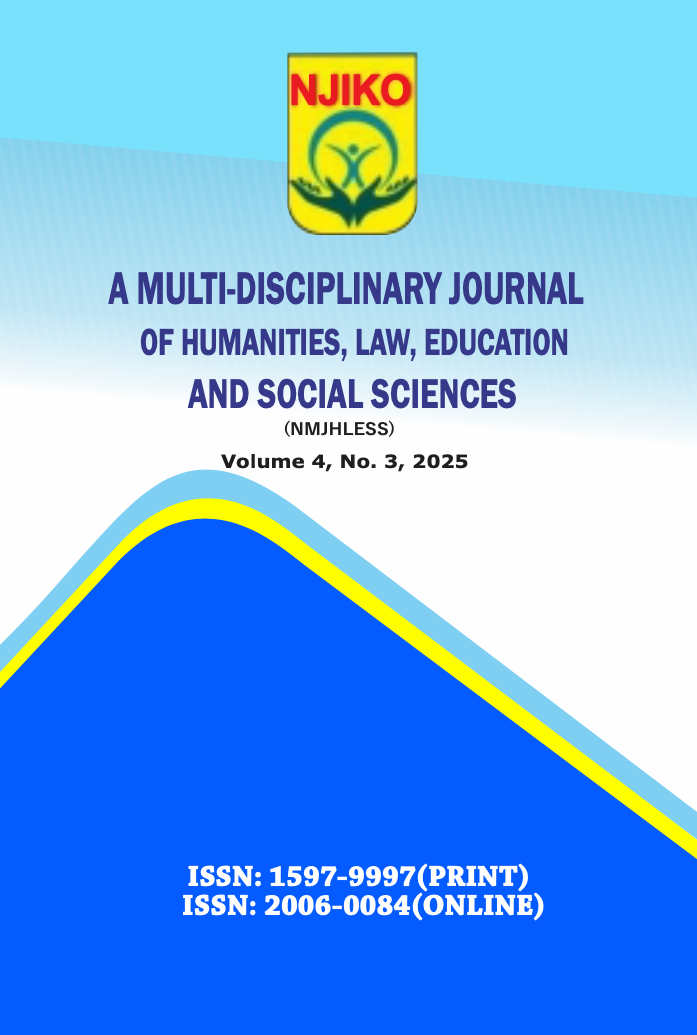THE EXAMINATION OF THE ROLE OF ACHINA WOMEN AFTER THE NIGERIA-BIAFRA CIVIL WAR 1970-2000
Resumen
This work examines how the lives of these women evolved in the face of globalization and democratization. Research findings from this study show that Achina Women progressed from the traditional mise en scene to the advanced world of modernization. The maleness syndrome which is the obvious norm of a typical Igbo culture did not hinder their active participation in the development of Achina and Anambra as a whole, as they were fully integrated in the happenings around their families and the state through various government programmes that gave them liberty to exercise their intelligence and capacity in various ways. The use of primary sources derived from oral information, focus group discussion, archival periodicals and newspapers, and archival materials from the National Archives, Enugu. Oral information was obtained through various people in Achina, group discussions and the use of questionnaires. To understand the necessity of this study, this paper grappled with the question: How did women's role in Achina evolve from the 1970s to the 2000s in response to local socio-political changes? This inquiry highlights the need to delve into the complex interplay of external forces, such as globalization and democratization, and their interaction with local dynamics bringing to light the broader implications of gender dynamics. Women's participation in politics, decision-making, and community development is central to understanding the evolving power structures within Achina


